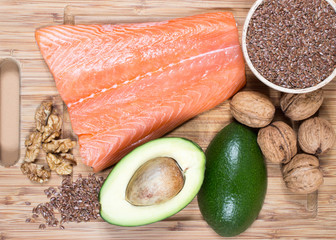If you wonder if Omega 3 Fatty Acids For Dogs are good for them, then the answer is YES! Your dog’s health depends on what the fish they eat also contains. Most importantly, the source of the fish matters. This means that you should only feed your dogfish from which the most healthy oil is extracted.
Some fish are naturally rich in these essential fatty acids. But because of human-made contamination over the years, it has become more difficult to find the cleanest and purest fish sources. Also, there is no guarantee that the fish feed you are getting is truly natural. You feed your dog from either contaminated fish or a farm where the fish are grown using unnatural methods. Feeding your dog a mix of different kinds of fish is not only healthier than just one type but is also more nutritious.
When it comes to Omega 3 fatty acids for dogs, sardines, mackerel, and trout provide the most health benefits. They are great choices for supplementing your dog’s diet since they are all deficient in fat. The oil extracted from the fish is usually called fish oil. Fish oil supplements can be found online or at vet clinics.
Many people question if fish oils are healthy because they taste bad. However, this is not true. In fact, many people would rather feed their dogs fish that is free of any smell or rancidity than giving them fish that is loaded with fats and chemicals. Therefore, feeding your dogfish that has been processed in a food mill to make it appear fresh is not only healthy but the tastiest fish around.

Another good reason to feed your dog fish oils is that it is easier on their digestive systems. Because the fish is free of any contaminants, it can pass through their systems more quickly and easily. This makes it much easier for your dog to digest. It also keeps them from getting sick.
There are many reasons why fatty acids are good for your dogs as well. One of them is how it affects their brain development. Fish contain lots of essential fatty acids that are very beneficial for your canine’s mental health. As a result, many canines with mental challenges have benefited greatly from eating the right kinds of fatty acids. Other studies have shown that canines-fed fatty acids develop better eyesight and perform better at recognizing images.
Another benefit of Omega 3 fatty acids for dogs is how it improves the skin and coat of your pet. Most dogs have a dry, rough coat. This is due to their lack of moisture. Dogs with a diet high in fatty acids will have softer, smoother, and healthier coats. This is very important for your pet’s overall appearance.
Also, check if the supplement you are buying contains vitamin A, D, E, and B-complex vitamins. These are essential to the health of your dog. It can help prevent eye diseases and stimulate the intestines. Omega 3 fatty acids can also help stabilize the cardiovascular system and reduce inflammation. They can also help detoxify the blood, improve kidney function and strengthen the immune system.
The liver produces more bile when a dog has sufficient amounts of fatty acids in his diet. You might find it surprising that your pets also have an internal cleansing system because they do not get enough food to digest the fats they eat. When these fats are not metabolized, it accumulates and affects their health. This results in frequent urination and bloating. The best way to ensure that your dog has a proper liver cleansing is to give him fatty acids through his diet.
Studies show that diabetic dogs have a higher probability of developing hyperglycemia, which is associated with the development of obesity. Diabetic dogs can be treated by increasing the number of carbohydrates in their diet (bread, rice, pasta, and cereal) and increasing fiber consumption. Both these dietary changes and a regular oral glucose-lowering medication can help diabetic dogs maintain a healthy weight.
Obesity in dogs is directly linked to a diet rich in fatty acids. A lot of overweight dogs suffer from joint and skin problems. The best way to prevent this is to increase the amount of fish and fatty acids in the diet. Fish oils and flaxseed oil are good fat choices.